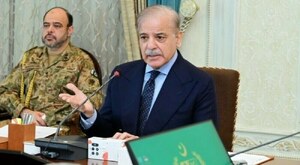Voters in the Central African Republic prepared Saturday to vote in the first round of presidential and parliamentary polls deigned to restore legitimacy to the government two years after a military coup. Outgoing president Francois Bozize, an army general who seized power with the overthow of the unpopular Ange-Felix Patasse, is one of the front-runners, but he faces challenges Sunday from other candidates with more widespread political backing.
The two-week election campaign was calm, with only a few incidents reported, including forgery of voters' cards, the head of the independent election commission, Jean Willybiro-Sako, told AFP.
But observers said much hinged on whether the results were universally accepted in a country which has a chequered history of coups and army mutinies, as well as endemic corruption.
Ten candidates are challenging Bozize for the presidency, and 928 candidates are standing for 105 parliamentary seats.
Bozize's decision to run as a candidate went back on pledges made when he seized power to general acclaim, and his attempts to bar seven of his rivals caused a storm in January.
Following Gabonese mediation, he backed down and agreed to allow all but Patasse to run, in a concession which improved his image but could seriously threaten his chances of success.
With no national political apparatus to support him, Bozize is up against a number of candidates backed by strong parties, notably former president Andre Kolingba, 69, who seized power in a coup in 1981 but was defeated in the first elections he staged after 12 years of authoritarian rule.
His other main rivals are Martin Ziguele, 49, who was successively head of Kolingba's sole ruling party, Patasse's last prime minister and an adviser to Bozize, and veteran politician Abel Goumba, 79, who has opposed every government for 44 years.
Another former prime minister, Jean-Paul Ngoupande, ex-ministers Charles Massi, Olivier Gabirault, Auguste Boukanga and Jean-Jacques Demafouth, and lawyer Henri Pouzere, are tipped to come in as also-rans, but they should split the vote sufficiently to force a second round.
One dark horse is Jose Binoua, a Protestant minister, who could benefit from the support of his church's substantial flock across the country.
During polling Sunday, the country's borders will be closed, traffic will be banned except for official vehicles, and bars will be shuttered.
Most of the 3.4 million inhabitants of this former French colony live in extreme poverty despite its reserves of gold, diamonds and uranium. Male life expectancy is 43 years. The Central African Republic, with an area of 622,984 square kilometres (240,324 square miles) bordered by Chad, Sudan, Congo, the Democratic Republic of Congo and Cameroon, gained independence in 1960. Long-term dictator Jean-Bedel Bokassa seized power in 1965 and declared himself life president in 1972.
In 1976 the country was renamed the Central African Empire and Bokassa had himself crowned emperor.
The country achieved notoriety because of Bokassa, whose army massacred schoolchildren during a revolt and who allegedly had his political rivals cooked and served to visiting foreign dignitaries.
BR100
15,186
Increased By
82.6 (0.55%)
BR30
42,842
Increased By
223 (0.52%)
KSE100
149,361
Increased By
1164.3 (0.79%)
KSE30
45,552
Increased By
281.7 (0.62%)





















Comments
Comments are closed.